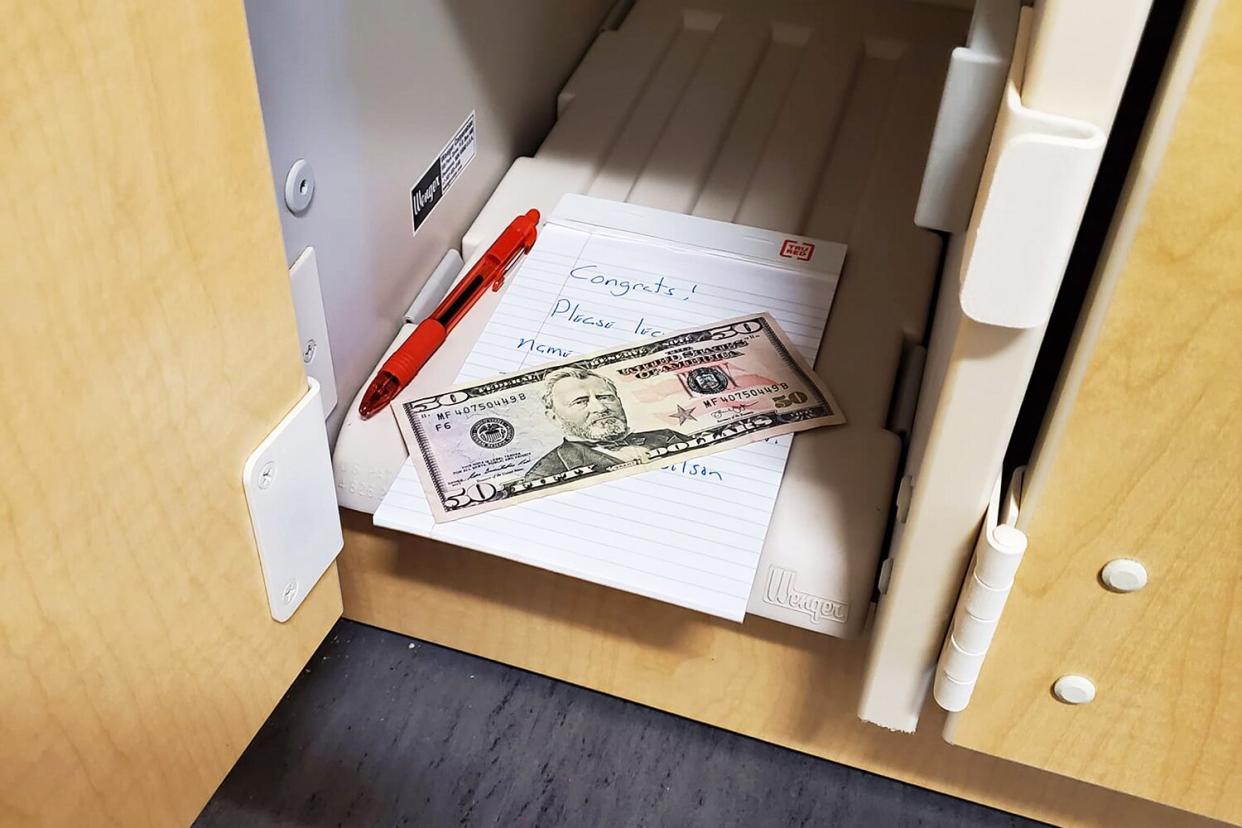Tenn. Professor Hid a Cash Prize Within His Semester Syllabus — and None of His Students Found It

Kenyon Wilson/Facebook
Don't forget to read the directions!
Students in one class at the University of Tennessee at Chattanooga learned that lesson the hard way this semester when they missed out on a small payday hidden within their syllabus.
Kenyon Wilson, the associate head of performing arts, told CNN that he tested his 71 students in his class by leaving a clue to a hidden $50 bill in the text of the class instructions.
Wilson used the new COVID protocols/information to sneakily try and draw attention to the syllabus content. "On the first day of class I told them there was stuff that had changed, and for them to make sure they read it," the educator explained to the outlet.
In between the text of one instruction, the clue read: "Thus (free to the first who claims; locker one hundred forty-seven; combination fifteen, twenty-five, thirty-five), students may be ineligible to make up classes and ..."
RELATED: From Reading Rainbow to the Spelling Bee! Levar Burton Will Host the 94th Competition: 'An Honor'
Inside that locker for one lucky student was a $50 bill and a note that read, "Congrats! Please leave your name and date so I know who found it."
Wilson revealed the surprise on Facebook on Dec. 8 as he "retrieved the unclaimed treasure" from its hiding place after final exams.
"My semester-long experiment has come to an end," the professor wrote on the social media platform. "At the start of the term, I placed $50 in one of our lockers and included the locker number & combination in my syllabus for a class with over 70 enrolled."
Wilson checked the locker at the end of the semester and discovered the lock had never even been turned once.
Never miss a story — sign up for PEOPLE's free daily newsletter to stay up-to-date on the best of what PEOPLE has to offer, from juicy celebrity news to compelling human interest stories.
"I know my students read, and I don't expect them to religiously go through word-by-word, but if they did, I wanted to reward them," Wilson said to CNN.
Haley Decker, a student that took Wilson's class for 3½ years, told CNN that she thought the experiment was "hilarious."
"This class typically is the same format every semester, so students know what to expect and don't take the time to read the syllabus like we should," she told the outlet. Decker told her friends about the experiment via text, and they, too, were amused.
RELATED: Ky. Man Raises Thousands to 'Give Back Christmas' to Kids Impacted by Deadly Tornadoes
"I think this was a really smart experiment for Dr. Wilson to test out. It definitely made the music students realize that despite repetitive information you should still read through your syllabus carefully," Decker shared.
"Everyone was guilty of having absolutely no idea it was in there," she later added. "We all admitted we briefly skimmed that part of the syllabus because that policy is in every syllabus for every class you take."

